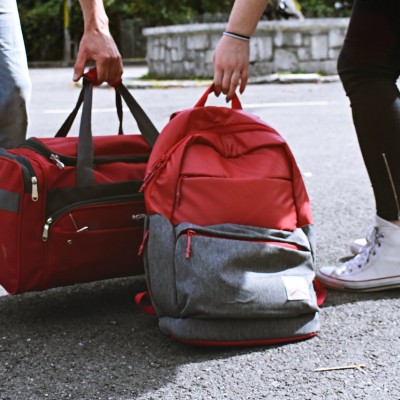
By Emily Gore
Children love going on summer vacations. However, problems can arise if divorced or separated parents do not communicate effectively about their summer holiday plans.
The parenting schedule they have reached should include language defining each parent’s right to vacation with their children, spelling out the specific number of weeks each summer. But there are many other issues that may come up, which can be avoided by planning ahead.
Here are the steps separated or divorced parents should take before booking a vacation with their children.
You may have to adjust the parenting agreement
If one parent has been granted weekdays with the children and the other gets weekends, any trip that is a week-long will interfere with that schedule. In this case, the parent requesting the vacation could offer an alternative temporary arrangement to make up for the time the child will be away.
If the other parent objects or refuses to discuss possible options, it may become necessary to speak to a lawyer and seek a court order granting permission for the travel, which can take time.
Obtain a consent letter if travelling abroad
If you will be crossing an international border with your minor child, the Canadian government recommends that parents obtain and carry with them a written consent letter from the other parent. While this letter is not mandatory, immigration authorities or airline representatives may request to see it. If you do not have it, that will result in delays or even a refusal to enter or exit a country. To avoid trouble, the non-travelling parent should be asked to sign the letter, based on this template provided by the Canadian government.
The letter should make it clear that the non-travelling parent is fully aware of the travel plans. It should also include:
- the name and birthdates of the children;
- the full name and birthdate of the travelling parent and their passport details;
- the dates of the trip and the travel destination; and
- contact information for the non-travelling parent.
Any adult may witness the signing of a consent letter but it is strongly recommended that a notary public witness and sign the letter. That makes it less likely that border officials will question its authenticity.
If the non-travelling parent has been denied parenting time or decision-making authority with respect to the child, it is not necessary to obtain their consent prior to travel. However, the travelling parent should carry a copy of the court order stating that the other parent’s consent is not required, in case that is requested by immigration and border authorities.
Agree on some general ground rules
Once the parents have agreed to a vacation schedule they can discuss any limits regarding the children. That would include what areas of the world are acceptable for vacations. For example, the Canadian government warns that anyone visiting countries such as Honduras, Saudi Arabia, Lebanon or Israel should “exercise a high degree of caution.”
Parents should also agree on what activities children be allowed to undertake when travelling. Is skydiving, scuba diving or bungee jumping allowed if they are offered at a resort? It is best for the parents to talk about this issue ahead of time, in case there are any injuries.
Keep in contact during the vacation
Unless the children are being brought to some remote part of the world there should be internet access available to them. Discuss with the other parent how often the child should contact them and the method (some parents may want postcards).
General advice about travelling with children
The government offers this general advice about travelling with children.
- Check the entry and exit requirements of each country you plan to visit on the Canadian Travel Advice and Advisories webpage. Do you need visas? Do your passports have to be valid for a certain period of time after your return date to Canada? Do you need to carry return air tickets/
- All children should carry a valid Canadian passport when they are travelling abroad. Children under the age of 16 can sign their own passports. If they do not, leave the signature block on page 3 blank. If a parent signs it on behalf of the child, the passport will be invalid.
- If you or your children are dual or multiple citizens, always travel with your Canadian passport so you can access Canadian consular services while you are abroad. Always present yourself as Canadian to foreign authorities, especially when entering and leaving the country of your other nationality, unless you must use that country's passport to do so. Carry supporting identification for each child, such as a photocopy of their birth or citizenship certificate, divorce papers and a consent letter. This will help prove the child's citizenship, residency and your custodial and decision-making rights.
- Speak with a lawyer. The government recommends that a parent wanting to travel with a child to another seek legal counsel if there are issues with the other parent about the trip or access issues. “Canadian custody orders are not automatically recognized or enforceable in other countries without going to court,” the government information reads. “Travelling abroad with the child without the legal right to do so may result in legal or criminal consequences.”
We are here to help
You deserve a relaxing vacation with your children and that can hopefully be achieved through careful planning and consultation with the other parent. If that fails, the team at Demas Schaefer Family Lawyers is ready to assist you with any legal action you need to take. Contact us today to schedule your free consultation.